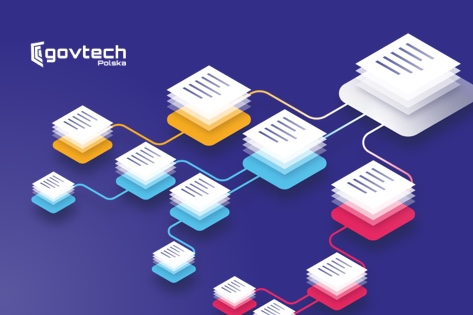
How Does Artificial Intelligence Work?
Artificial Intelligence
Business Strategy
Read moreEnhance your product and make informed business decisions using state-of-the-art Machine Learning models
Let’s work together
As a Machine Learning development company, we combine our expertise with software development, data analytics, visualisation and consulting support to ensure efficiency, safety and assistance to deliver end-to-end solutions. We create Machine Learning solutions using supervised, unsupervised and reinforcement learning to help you optimise your processes and enhance your products.

Predictive Analytics allows you to anticipate the future and make business decisions based on your current or historical data. It offers a variety of applications specific to a wide range of business sectors. Credit scoring can be applied to assess the likelihood of clients repaying loans. Sales forecasting is used to assess the demand for a product, while anomaly detection helps to identify risks and unexpected events with the use of data mining techniques. With the aid of predictive analytics, you can reduce risks while simultaneously improving business operations.

This is a part of predictive analytics that helps to answer a specific question: which customers end their relationship with a company (or stop using the product) and why? In other words, churn prediction lets you pinpoint when users are about to stop using your services before they do so. It becomes a massive asset when it comes to increasing customer retention. Thanks to churn prediction, you can learn what are the pain points related to your product or services, and find the right way to improve them.

Learning user behaviour and needs is crucial when it comes to digital businesses. Customer Analytics combines predictive analytics and customer segmentation to improve communication with customers and increase profitability as a result. We make it possible for companies to gain insights about the needs of a specific client segment and target tailored, direct marketing to their customers. When your selected user base is given the right message at the right time, you’ll see your conversion rates grow steadily.

Text Analytics is used to translate large amounts of unstructured text into machine interpretable, quantitative data to speed up and automate all text-based processes. We can apply natural language processing methods to help you with all kinds of text, including documents, social media posts, surveys and chatbot conversations. One of the most popular applications of Text Analytics is automatic topic detection and sentiment analysis, which is particularly helpful when it comes to understanding your userbase’s needs.

Personalisation is the key to success in the digital landscape, no matter which industry you operate in. Recommendation Systems powered by machine learning are used to predict user preferences based on their behaviour and experience. We apply recommendation engines to provide your customers or users with personalised content by suggesting the products and services they’re most interested in. By giving your users recommendations that are tailored to them, you can make sure to improve their satisfaction with the service, and increase overall sales.

We harness most of the available Artificial Intelligence options to give you a solution you can be truly satisfied with. Neural Network-based solutions can find complex patterns in data that would otherwise remain hidden. We apply Artificial Neural Networks and Deep Learning solutions for image, character and speech recognition, where other Machine Learning methods are not applicable or efficient enough, in order to provide you with a seamless digital product that will leave your competitors far behind.
Need your idea verified fast?
Here are a few examples of how Machine Learning engineering can leverage cutting-edge techniques to help you solve complex business challenges and stay ahead of the competitors
The use of Machine Learning solutions can keep your conversion rates and sales growing while also reducing costs at the same time. Increase revenue results thanks to a better understanding of shopper needs, a more personalised user experience and effective marketing campaigns that make for satisfied customers.
By limiting time-consuming human involvement with tasks that can be automated, operating expenses can be significantly reduced. Additionally, machine learning solutions help to detect unusual or unauthorised bank transactions, as well as identify and limit fraudulent insurance claims and loan applications that can put company finances at risk.
Automation of administrative tasks and client management systems reduce staff involvement. More effective customer service, detection of fake news, preventing cyberbullying and removing offensive comments in social media can be done using text analytics for instant and deepened interactions with customers and users.
Harness the power of Machine Learning in a way that will benefit your business the most. Face detection and recognition, as well as attracting video-on-demand viewers based on their personalised interests are some examples of possibilities that can be brought to your company with the implementation of Machine Learning solutions.
Ready to create your ML Solution? Contact us!
Get a quote in 48h

NLP-based classification of patent applications
Miquido people are truly agile and definitively have a can-do attitude.James Allan To, Chief Commercial Officer, Nextbank Software Inc.
Python
Apache Spark
AWS Glue
Amazon EMR
Amazon Kinesis
BigQuery
Delta Lake
PostgreSQL
Amazon SageMaker
TensorFlow
Keras
Pandas
Tesseract
Google Data Studio
Power BI

Does Machine Learning sound confusing to you? Don’t worry, pick a question and we will provide you with a brief answer!
Machine Learning (ML) automatically recognises complex, previously unknown and useful information in all types of data. In the ML process, a model learns by looking for patterns hidden within given data. The more data there is, the more accurately the model resembles the real process. Additionally, by adjusting model parameters we can further improve its performance. Having an adequate model built, we can then generalise its application and make predictions about fresh data.
There are two common types of ML tasks. Firstly, classification that predicts output based on given data. This can be used, for example, for a credit scoring or product dement prediction. The second one type clustering that assigns similar objects together, which makes it a perfect solution for customer or user segmentation.
Curious about the details? Check our AI guide for business owners!
This is an iterative process of building Machine Learning solutions in a pipeline. Generally speaking, it consists of the following steps: data wrangling, model building and making predictions. The model is a simplified representation of a modeled process. The data phase includes data collection, data exploration, feature engineering, and splitting data into training and evaluation sets. After that, models are built, evaluated, and their performance is improved by hyperparameter tuning. With the model deployed, we can make predictions using new data. The last phase in the project lifecycle is model maintenance and support.
Features or variables are measurable characteristics of the object (like a product or a customer) and are a basic input building block of all datasets. Based on them, prediction or clustering is performed. During the feature engineering process, new features can be obtained from raw features with the aim to improve an algorithm’s performance.
Natural Language Processing (NLP) is an automatic manipulation and understanding of written or spoken text. It intersects such fields as linguistics, artificial intelligence and machine learning.
Recommendation Systems are algorithms used for suggesting relevant content or products for users or shoppers. Recommendations are generated on user-item attribute similarities.
Predictive Analytics models in business applications use patterns found in historical data to identify future risks and opportunities. Apart from machine learning techniques, predictive analytics also encompasses statistics and data mining. One of its well-known applications is credit scoring used in the financial sector.
Deep Learning (DL) relates to a subgroup of Artificial Neural Networks (ANN) that have more than 3 layers and therefore can extract higher-level features. ANN are a part of Artificial Intelligence that solve complex and non-linear problems by mimicking animal neuron network behaviour. DL systems are self-teaching and able to filter information through multiple hidden layers in order to resemble human brain processes with an even higher accuracy. It is an implementation of artificial intelligence and can be used e.g. for automatic machine translation, image classification, voice recognition or self-driving cars.
Cloud-based modelling merges Machine Learning capabilities with cloud-based computing environments. Cloud-based modelling can be performed using AWS SageMaker, Microsoft Azure, Google Cloud ML Engine or IBM Watson.
Although ML can be applied almost everywhere, there are some limitations we have to be aware of. It requires a large amount of high-quality data to perform well and deliver reliable solutions. There is always some bias as we are working only on an available subset of the data that might not fully represent the modelled process. There is also an ethical dilemma with a responsibility for the outcome of ML-based decisions (e.g. a self-driving car accident). In some cases, a simple interpretability of modelling outcomes may not be possible.

For our healthcare clients and care providers we offer patient risk identification and virtual assistance. By applying computer vision solutions, we can also assist you with medical image classification and tagging. Manual data entry can be replaced by automated, less error-prone processes.
Product recommendation, customer churn prevention, price optimisation, demand response management—these are just a few things we can do for your business! We also excel in conversational AI and chatbots for automated customer service.
Thanks to our experience with content recommendation systems implemented for music streaming services, we are experts when it comes to boosting endorsement accuracy. Dedicated social media solutions may find their application in post management and analysis. By using NLP we can interpret user emotions and opinions (sentiment analysis), detect fake news and delete offensive comments.
Our experience in the fintech industry can help your business make better credit scoring predictions. We can assist you with product design and development, portfolio management and pricing automation. Additional risks-related solutions may include fraud and unusual transaction detection as well as fraudulent insurance claims and loan applications.
Dynamic pricing, automated customer service, optimal marketing and product development; these are just a few more examples of potential benefits that Machine Learning solutions can bring into your business.

Artificial Intelligence
Business Strategy
Read more
Artificial Intelligence
Read more
Artificial Intelligence
Read more
Hi, I’m Jerzy, Head of Innovation & Business Development at Miquido. Fill in the form to the right and we’ll get in touch soon!
The controller of your personal data is Miquido sp. z ograniczoną odpowiedzialnością sp.k. with its registered office in Krakow, ul. Zabłocie 43a, 30-701 Kraków. We process the above information in order to answer your questions, contact you and conduct business communication, and if you tick the checkbox, to send you messages containing commercial, business and marketing materials.
The basis for the processing of your data is your consent and Miquido’s legitimate interest.You can unsubscribe from the marketing communications at any time. You also have the right to access data, the right to request rectification, deletion or limitation of their processing, data transfer, the right to object, as well as the right to lodge a complaint to the supervisory body. Full information about processing of personal data can be found in the Privacy Policy